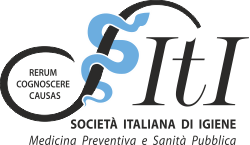The polio vaccine is an inactivated vaccine (ie obtained with killed viruses) which is administered intramuscularly. It can be given together with other vaccinations. In children the primary cycle is usually carried out within the so-called hexavalent vaccine containing 6 vaccines: Diphtheria-Tetanus-Pertussis, Polio, Hib and Hepatitis B.
When to vaccinate
Children
The current vaccination schedule includes four doses as follows:
- the first dose in the 3rd month of life;
- the second dose in the 5th month of life;
- the third dose in the 11th month of life;
- the fourth dose at 5-6 years of age.
Is very likely that a fifth dose may be necessary during adolescence to maintain adequate levels of protection over time.
Most people over the age of 18 do not need polio vaccination as they have been vaccinated as children. However some adults may be at greater risk of contracting the disease:
- if they travel to areas of the world where polio is common
- if, for professional reasons (laboratory technicians, health personnel), they may come into contact with the polio virus
In these cases:
- if the subject has never been vaccinated, 2 doses are recommended (4–8 weeks apart), followed by a third dose after 6–12 months;
- if they have had 1 or 2 doses of the polio vaccine in the past they must receive the remaining 1 or 2 doses, without taking into account the time elapsed since the previous dose;
- if they have had 3 or more doses in the past they must receive an additional booster dose.
Who should not be vaccinated
- A child with a severe allergy to any component of the vaccine, including the antibiotics neomycin, streptomycin and polymyxin B;
- A child who has had a severe allergic reaction to a previous dose of the polio vaccine.
When to postpone vaccination
Children with mild illnesses (for example colds) can generally be safely vaccinated. If, on the other hand, they have moderate or severe illnesses (including vomiting and diarrhoea), it is advisable to delay vaccination until they recover.
Vaccination risks
Like any other drug, vaccines can cause serious problems, such as a severe allergic reaction. However, the risk of the polio vaccine causing serious problems is extremely low. Most vaccinated children do not incur any problems. After a dose of the vaccine, pain and redness may occur at the injection site.



